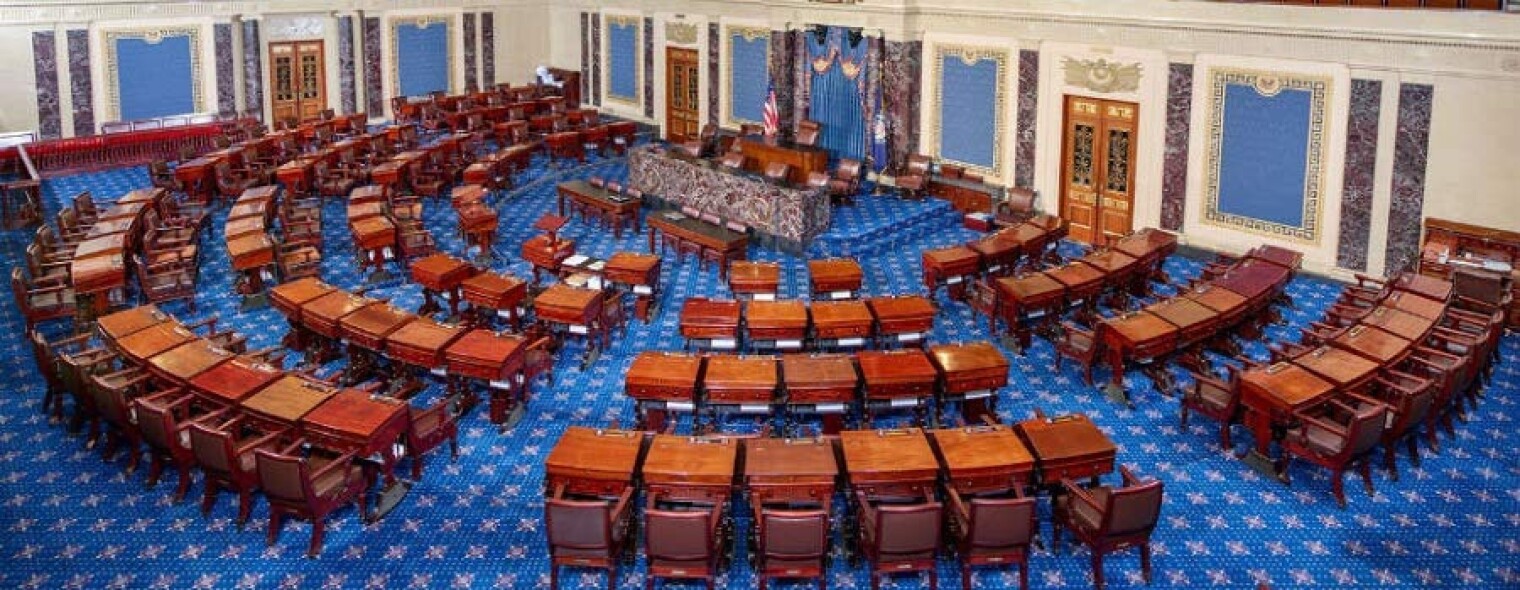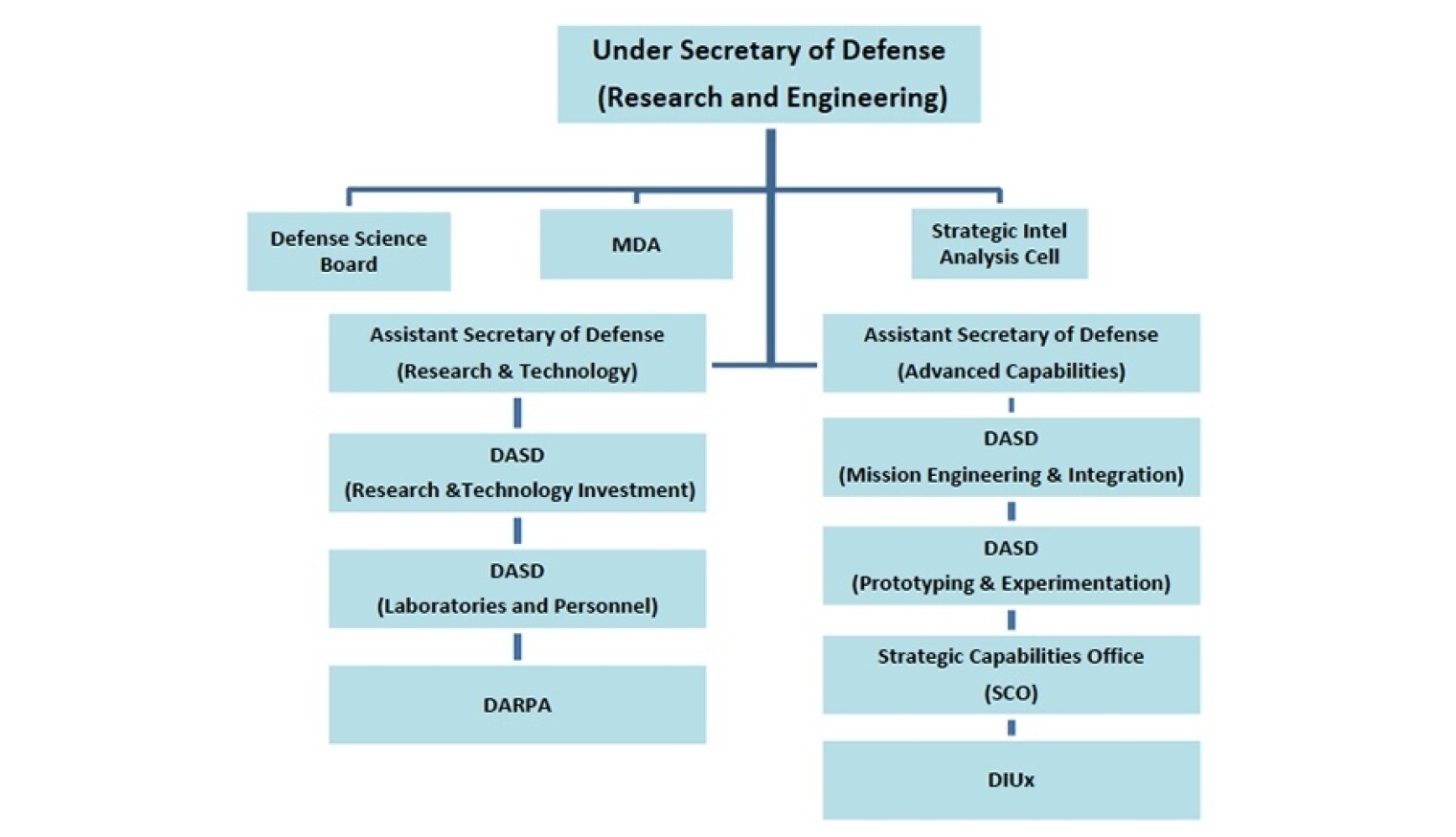|
What’s Ahead
 |
| The Senate adjourned for August recess on Aug. 3, bringing legislative business to a close until after Labor Day. (Image credit – U.S. Senate) |
Congress in Recess Until September, President Leaves Town
Washington will slow down starting this week as Congress takes its standard month-long August recess and President Trump begins a two-week period away from the White House. When Congress comes back into session on Sept. 5, the focus will be on budget and appropriations, which are progressing far behind schedule. Before leaving town, the House passed a four-bill appropriations “minibus” package that included funding for the Department of Energy and Department of Defense, but that measure advanced without the bipartisan support that will be necessary to win passage in the Senate. Leaders will have less than a month to reach agreement on a plan to extend government funding in order to avoid a shutdown of the federal agencies at the end of the fiscal year on Sept. 30.
|
|
In Case You Missed It
 |
| (Image credit - DOD) |
DOD Outlines Research & Engineering Reorganization Plans
The Department of Defense released its plans last week for placing the department’s S&T activities under a new position of under secretary for research and engineering (USD(R&E)). DOD expects to implement the reorganization by Feb. 1, 2018, as required by the National Defense Authorization Act for Fiscal Year 2017. Last year, the department resisted the change on the grounds that technology development and acquisition are closely interlinked functions. Now, it is looking to use the reorganization to foster a stronger culture of innovation. Accordingly, it is placing many of its Third Offset initiatives and priorities under a new assistant secretary for advanced capabilities reporting to the USD(R&E). Most research functions, including the Defense Advanced Research Projects Agency, will be placed under a separate assistant secretary for research and technology.
Currently, there is a single assistant secretary of defense for research and engineering (ASD(R&E)) position, which reports to the under secretary for acquisition, technology, and logistics (USD(AT&L)). On Aug. 1, the Senate confirmed Ellen Lord to be the new USD(AT&L) on a voice vote. Following the reorganization, she will transition to a second new position, under secretary for acquisition and sustainment. DefenseNews reports that DOD is closing in on a nominee who would move into the USD(R&E) role.
Trump Backs Immigration Bill Favoring STEM Workers
At an Aug. 2 press conference, President Trump endorsed a bill sponsored by Sens. Tom Cotton (R-OK) and David Perdue (R-GA) that would significantly scale back the number of legal immigrants granted green cards each year and implement a points-based system for employmen-based immigration that favors highly skilled workers who demonstrate English proficiency. Applicants with master’s, professional, or doctorate degrees in STEM subjects would score higher, with further bonuses awarded if the degrees were granted by U.S. institutions. The system would also provide a large point bonus to applicants who are Nobel laureates or who have “received comparable recognition in a field of scientific or social scientific study.” House Science Committee Chair Lamar Smith (R-TX) endorsed the bill, saying it would ensure the U.S. “admits those with the highest training and abilities to spur economic growth and innovation.” However, it is unlikely that the bill could garner enough votes to pass in its present form as it has already drawn criticism from both sides of the aisle. The Milwaukee Journal Sentinel reported that Speaker of the House Paul Ryan (R-WI) has cast doubt on the wisdom of the overall proposal, although he also indicated he would support an immigration system overhaul that focuses on workforce needs in research and engineering fields, among other areas.
DOE Deputy Secretary Confirmed, Under Secretary Nominees Advance
On Aug. 3, shortly before adjourning for August recess, the Senate confirmed Dan Brouillette as deputy secretary of energy on a vote of 79 to 17. Brouillette was nominated on April 3, and he is only the second Trump administration Senate-confirmed appointee to join the Department of Energy. The same day, the Senate Energy and Natural Resources Committee voted to advance the nominations of Paul Dabbar and Mark Menezes to be DOE’s under secretary for science and under secretary, respectively. Since a 2013 reorganization, the under secretary for science has had jurisdiction over both the DOE Office of Science and the applied energy offices, and the position is generally referred to as the “under secretary for science and energy.” If enacted, the Senate’s recently revived “Energy and Natural Resources Act” would cement that label into law, but, for its part, DOE has signaled it wants to return to an earlier organizational structure.
Scientific Societies Question Red Team/Blue Team Climate Debate
Late last month, leaders from 16 scientific societies, including the American Association for the Advancement of Science and the American Geophysical Union, sent a letter to EPA Administrator Scott Pruitt requesting a meeting to discuss his interest in holding a “red team/blue team” exercise to interrogate the state of climate science. The societies argue the peer review process already ensures conclusions are supported by sound data, and warn against the politicization of science, writing,
|
|
Events This Week
DOE: “Future Nuclear Energy” Basic Research Needs workshop (continues through Friday)
Invitation only
Friday, August 11 No events start today.
|
|
Opportunities
Nominations Open for National Science Board
The National Science Board is accepting nominations for new board members. The NSB is the governing board of the National Science Foundation and serves as an independent advisory body on science policy issues to the president and Congress. Members serve six-year appointments, with the next term starting in 2018.
National Academies Seeking Physics and Astronomy Program Officer
The National Academies is seeking applicants for a program officer position with the Board on Physics and Astronomy. The program officer manages several board projects, which includes assembling committees, facilitating workshops, and developing study reports. Interested individuals with a master’s or higher degree and three years of experience in a related field are encouraged to apply.
National Academies Jefferson Science Fellowship Now Open
The National Academies are soliciting applications for the Jefferson Science Fellowship Program. Fellows will be assigned to a one-year position to work on science and technology policy issues at the U.S. Department of State or the U.S. Agency for International Development. Applicants must be tenured faculty at a post-secondary academic institution and apply by Oct. 21.
Know of an upcoming science policy opportunity? Email us at fyi@aip.org.Know of an upcoming science policy event? Email us at fyi@aip.org.
|
|
Around the Web
News and views currently in circulation. Links do not imply endorsement.
White House
Congress
Budget
Political Engagement
Education and Workforce
Research Management
Labs and Facilities
Space
Energy
Weather, Climate, and Environment
Defense
Biomedical
International
|
|
|
|
|
|
